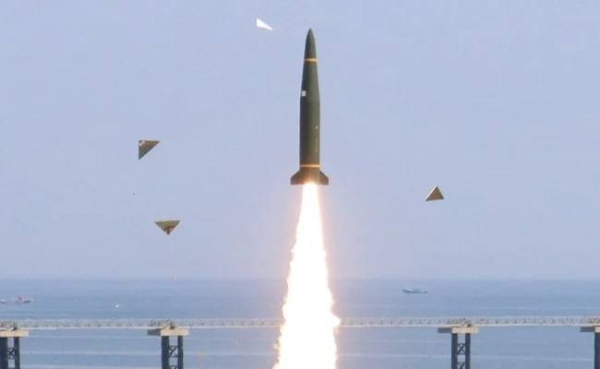
South Korea and the United States will announce next week the suspension of “large-scale” military drills this week, reported the Yonhap news agency on Sunday.
Citing an unnamed government source, the South Korean news agency said the suspension was likely to affect only major joint exercises, not more routine military training.
They would restart if North Korea failed to keep its promise to denuclearize, it added.
US President Donald Trump surprised officials in Seoul and Washington when he pledged to end “war games” after his summit with North Korean leader Kim Jong Un in Singapore last week.
Immediately after the announcement, US forces in Korea said they had received no guidance on stopping any drills, and South Korean officials said they were trying to figure out which exercises Trump was referring to.
However, in a sign Seoul may be open to suspending drills, South Korean President Moon Jae-in said on Thursday his government would need to be flexible when it came to applying military pressure on North Korea if it was sincere about denuclearization.
Moon said South Korea would carefully consider joint military drills with the United States and he asked his officials to cooperate with the United States on the issue, his office said in a statement at the time.
Trump’s nominee to be ambassador to South Korea on Thursday backed the idea of a “pause” in major military exercises between US and South Korean forces, while talks on North Korea’s nuclear program continue.
“The whole landscape has shifted, and I believe that we should give exercises, major exercises, a pause to see if Kim Jong Un is in fact serious about his part in negotiations,” retired Admiral Harry Harris, who just stepped down as head of the US military’s Pacific Command, told a Senate hearing.
Harris said his understanding was that any suspension would involve only major military exercises and that regular training of US forces in South Korea would continue, although final decisions were up to the Department of Defense.
“I’m convinced that our alliance commitments to South Korea remain ironclad and have not changed,” he told the Senate Foreign Relations Committee.
Trump on Wednesday hailed his meeting with Kim as having removed the North Korean nuclear threat, but Harris told the panel “I think we must continue to worry about the nuclear threat.”
Harris also said he believed sanctions on North Korea should stay in place while denuclearization talks continue, echoing comments earlier on Thursday by US Secretary of State Mike Pompeo.
Pompeo, speaking in Seoul, said tough sanctions would remain until North Korea’s complete denuclearization, apparently contradicting the North’s view that the process agreed at the Trump-Kim summit would be phased and reciprocal.
Yonhap also reported on Sunday that during military talks between the two Koreas on Thursday, South Korean officials asked their northern counterparts to relocate artillery 30 to 40 kilometers away from the heavily fortified military demarcation line that divides the two countries.
The South’s defense ministry denied it made such a request, Yonhap said.
The talks, the first in more than a decade, held in the border village of Panmunjom in the demilitarized zone (DMZ), followed an inter-Korean summit in April at which leaders of the two Koreas agreed to defuse tensions and cease “all hostile acts”.
North and South Korea failed to reach any concrete agreement during those talks, officials said.
North Korea proposed to Seoul to disarm, on a trial basis, the Joint Security Area in Panmunjom, the only site in the DMZ where both countries’ soldiers stand almost face to face, the South’s presidential spokesman said on Friday.
About 28,500 US troops are stationed in South Korea, a legacy of the Korean War, which ended in 1953 in an armistice that left the two Koreas technically still at war.
The US-South Korean exercise calendar hits a high point every year with the Foal Eagle and Max Thunder drills, which both wrapped up last month.
The next major drill, Ulchi Freedom Guardian, is planned for the end of the summer.
Last year, 17,500 American and more than 50,000 South Korean troops participated in the Ulchi Freedom Guardian drills, although the exercise is mostly focused on computerized simulations rather than live field exercises that use weapons, tanks or aircraft.












